The Star Trek Economy Explained
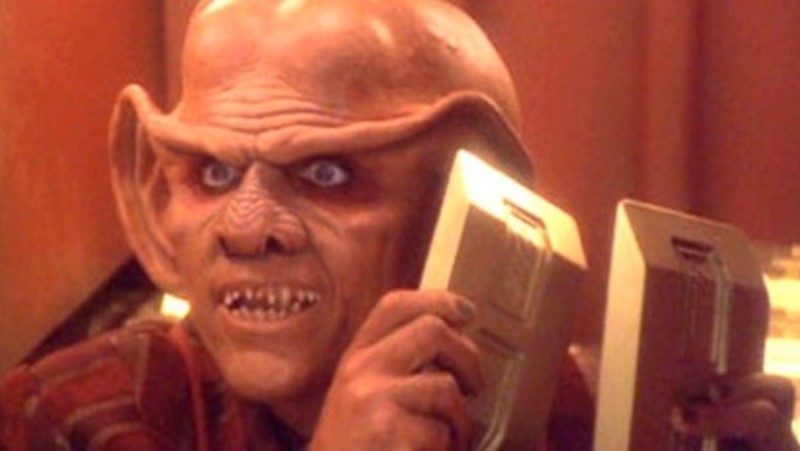
Even the most casual Star Trek fans eventually end up asking plenty of questions about how the future economy is supposed to work. This is a world where replicators can make almost anything, but whether Starfleet members get paid or not changes based on which particular movie or episode you happen to be watching on Paramount Plus. But since we don’t believe in the no-win scenario around here, we’re going to try to do the impossible: explain, once and for all, how the hell the Star Trek economy is supposed to work.
As we alluded to before, the biggest question regarding Star Trek’s economy is whether Starfleet members are “paid” in the traditional sense and, if so, exactly what money means.
In The Original Series, Captain Kirk claims that he is authorized to pay some miners for their dilithium, and in the movie The Undiscovered Country, Scotty casually mentions buying a boat — two movies after Kirk himself scornfully notes that in the 20th century, “they’re still using money.”
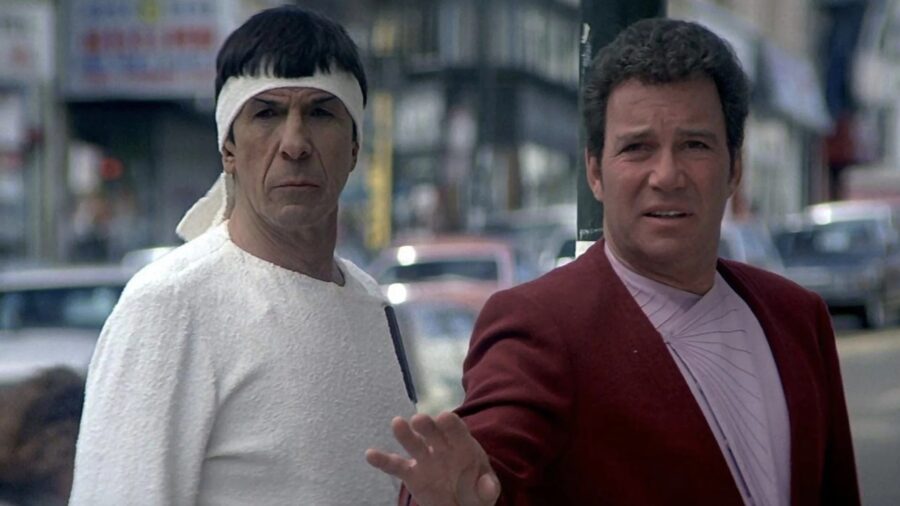
In other words, the Star Trek economy has been very contradictory for a very long time, but several theories have emerged over the years to explain it.
For example, despite earlier exceptions to this rule, it’s clear that the Federation doesn’t use money as we understand it. One theory holds that in a future where everyone has access to a replicator, the closest analog to our modern currency is that everyone gets a certain energy allotment from the Federation.
The idea here is that everyone regularly gets more than enough energy to safely and happily live on, and they can replicate meals, clothing, and whatever else they need for the rest of their lives without having to work.
But even though everyone gets more than enough for themselves, there must be some kind of limits in place for individual use. That’s why in Star Trek, we constantly see characters replicating food and drink, but we never see random characters do things like replicate a fleet of starships.
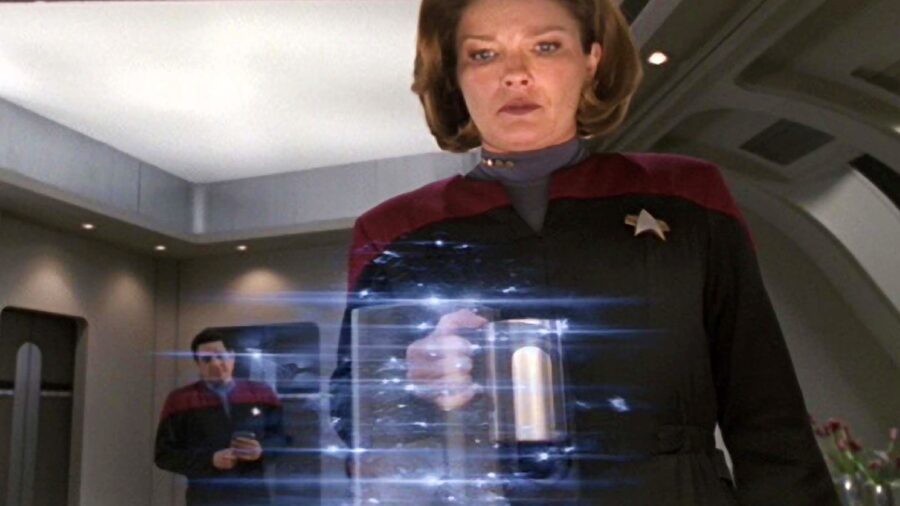
If Star Trek’s economy works this way, then Starfleet members and Federation citizens could be incentivized to work various jobs by getting an increase in their energy allotment. This goes hand-in-hand with another theory: in a future where all your economic needs are taken care of, the main thing individuals might compete over is personal prestige.
It’s still considered prestigious to become captain of a starship not because you get a huge salary, but because the position is a manifestation of both your talent and your ambition.
One issue with Star Trek’s economy that has never been fully explained is that private property still exists. Picard, for example, has a sprawling chateau that has been in his family for generations, and Raffi throws this in his face by comparing his grand “estate” with her own “hovel” (which looks for all the world like a futuristic mobile home).

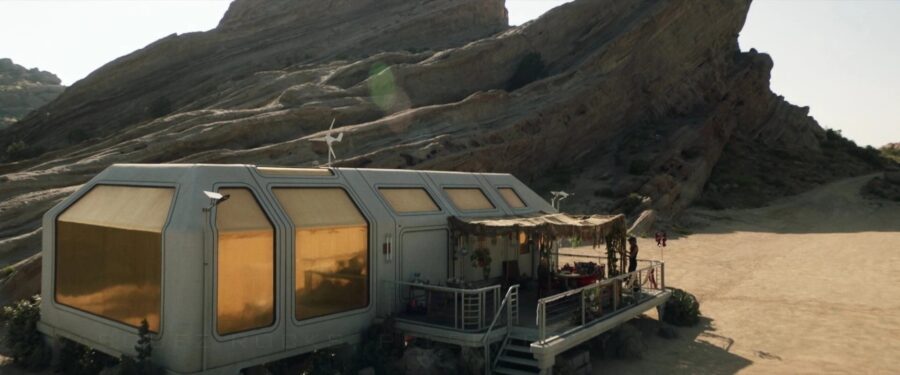
The implicit answer seems to be that some characters may inherit private property, and what they inherit may be bigger and more impressive than what the Federation provides the average citizen (who, it should be noted, is still receiving a completely free home).
By far, the prickliest concept of the Star Trek economy is that characters frequently mention “credits,” and it’s never been clear whether that is completely analogous to our own concept of currency (which would fly in the face of the notion that the Federation doesn’t use money).
Some characters may inherit private property, and what they inherit may be bigger and more impressive than what the Federation provides the average citizen.
A compelling theory by Rick Webb states that this is likely a third-party currency created outside the Federation to make various trade deals easier to manage. This would explain why Quark can choose to accept Federation credits alongside more tangible, non-Federation currency such as gold-pressed latinum.
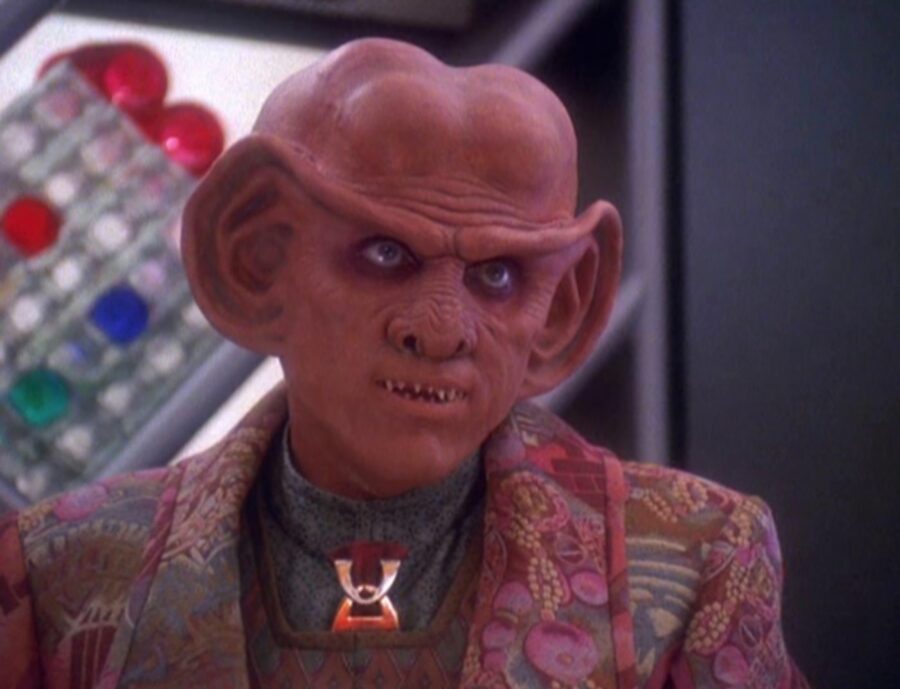
If these credits were made by a third party, though, then how would your average Starfleet citizen get ahold of them? Webb contends that much of Star Trek’s economy is held together by a barter system in which Federation citizens can trade for various things they really need, which might include said credits.
It’s up to individuals to decide what items are worth to them: for example, a home-cooked meal at Joseph Sisko’s restaurant is likely worth more than a replicated meal, just as Chateau Picard wine is theoretically more valuable than replicated wine (we say “theoretically” because everyone seems to hate the taste).
In the movie The Undiscovered Country, Scotty casually mentions buying a boat — two movies after Kirk himself scornfully notes that in the 20th century, “they’re still using money.”
The final question about Star Trek’s economy, then, is what Starfleet officers do when they are given outside currency such as gold-pressed latinum (something that seems to happen often on Deep Space Nine). Webb’s theory holds that this just becomes part of the barter system: an officer with latinum to burn could go spend it on one of Quark’s holosuites, but he could have also paid for his time with Federation credits.
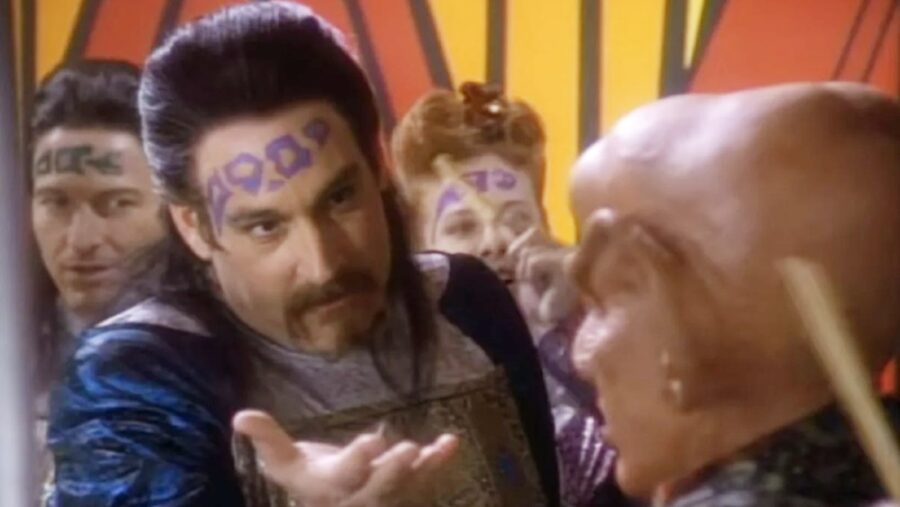
If the Federation receives third-party currency as part of a trade, it simply becomes part of the futuristic foreign reserve, just as modern nations often have stockpiles of foreign currency.
Economies Outside The Federation
Obviously, our look at the Star Trek economy has focused entirely on how things work in Starfleet and the Federation. Alien races like the Ferengi still operate through naked capitalism, and many of our theories about Federation credits and economic attitudes stem from seeing how the post-scarcity Starfleet officers deal with other cultures that still highly regard money.
But considering that modern humanity looks a lot more like the Ferengi than the Federation, it’s clear that we still have a very long way to go before we can traipse, without worries about money, throughout the cosmos.












